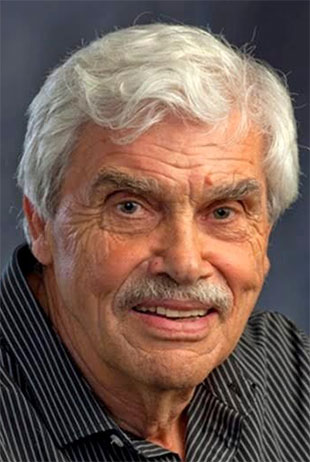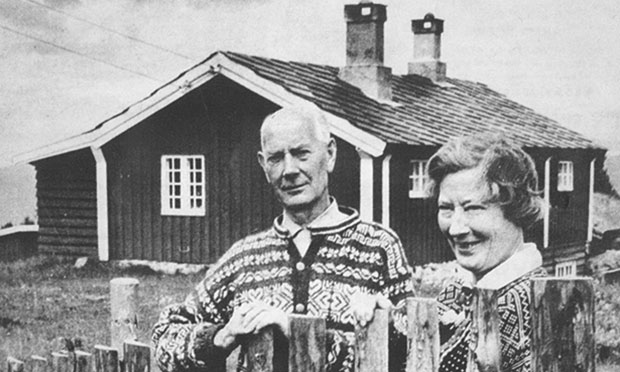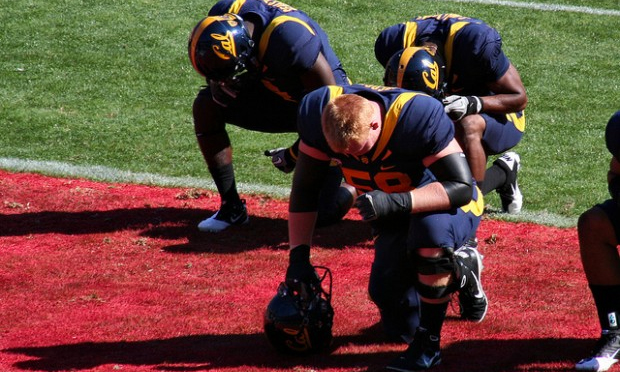Håkon Lutdal
Former director of sport/national team manager for athletics[i]
Translated by Jeremy Crump

The Winter Olympics are over, Norway having helped itself to more medals than anyone else. There is every reason for pride and congratulation.
Otherwise, this year’s Olympics consisted of a fine curling competition, with play around the clock for two weeks, all playing all and world champions crowned in several categories. Curling is as good a sport as any, and well-suited to television. The degree of interest in South Korea cannot be questioned either – their women’s team won silver. Golf played a similar role of providing non-stop play in the last summer Olympics. But these two sports, like most others, have nothing much to gain from choosing their world’s best in the hubbub of the Olympics – other, that is, than from the recognition it traditionally and unsurprisingly brings when compared with the regular world championships.
The Olympics get steadily bigger and bigger. There were four new events in the most recent games, which consisted of 102 competitions in 15 sports.
Five new sports have been added to the programme for the gigantic summer Olympics in 2020: surfing, skateboarding, karate, softball and sport climbing. These provide 18 new events. The summer games will then consist of a total of 33 sports divided into 42 disciplines, with 324 competitions altogether. Ten-pin bowling and squash are on the waiting list!
It is a mystery why all the sports should continue to be gathered in a single city (or region in the case of South Korea) where they largely get in each other’s way. Some have no reason to be there at all, like cross-country skiing in Pyeongchang, where there is not the least interest in the sport. It is in any case more and more apparent to the whole world that the Olympic Games have long passed their sell-by date, are out of keeping with our times and hinder sport more than they help it.
So abolish the Olympic Games to make room every fourth year for sports to arrange their world championships, crowning the same champions in a suitable place, in facilities which already exist and in front of interested spectators. And separate the events to give the TV audience a better chance to keep up. This will also be a chance to clear up the administration of world sports, including the anti-doping work. The IOC has been a ball and chain for too long.
The Olympic spirit has been stone dead for a very long time. No-one remembers amateur sport. The Games’ significance for international coexistence is pure nonsense. The Council on Foreign Relations is on record as saying that the ingenious assertion of the Games’ positive side effects is just a myth. For half a century, the Olympic Games have stood out as bloated and pampered, with bribery and corruption the order of the day under an authoritarian IOC which has been close to giving the impression that it rules the world. The chaos around the Russian doping case before the recent Games says it all about a sports movement which is at odds with itself and badly run.
The cost of arranging the Olympic Games is enormous. Facilities are built for demolition after three or four periods of use, or they remain standing like ghosts, or they serve as an endless drain on finances. The final bill for the games in South Korea will be €1.1 billion. Typically enough, the planned expenditure was €0.7bn. Of the 13 stadiums, six were purpose-built for the Games and large sums were spent on the others. The cross-country skiing runs will soon be golf courses again and the ski jumps levelled to the ground, the landing area converted back to football pitches with new stands. An effort will be made to restore the alpine skiing area to its state before the Games, with €70m to be spent on planting new trees after the clear-felling. The Olympic Stadium, which cost €80m to build, will be demolished.
The summer games in Tokyo (2020) were originally budgeted at €10bn but the organisers have recently announced that that they will cost three times more than that. It’s the same old song.
It is time to say that enough is enough and consign the Olympic Games to the history books, although they could bring themselves to a halt first. Quite simply, no-one will take on organising the games except for a few generally authoritarian and corrupt states in which public opinion is not influential. Most democratic states make their excuses, often after having sent off their applications. Their citizens will not be part of a crazy spending spree at a time when large parts of the world are crying out for economic assistance. Refusals come from many directions, including Germany, Switzerland and Austria. They say ‘no thanks!’.
As a result, there are only two applicants to host the Winter Olympics in 2022 – Beijing in China and Almaty in Kazakhstan. After five had expressed interest, three withdrew.
The organisation of today’s sports is pretty slick, not least in order to fit in with television. There are world championships, European championships, World Cups, Grand Prix and so on. Football, for example, has the perfect set up with the European Championship, the World Cup and qualifying matches in between. Athletics, handball, skiing, skating and others have robust arrangements too. The old Olympic Games barges in disruptively every fourth year. The proper world championships are not just easier to arrange and follow, they often offer better quality sport as well (for example football amongst others). South Korea is the perfect venue for the skating world championships by the way. After the Olympics, the sports carry on doggedly with their tried and tested arrangements. The skating world championship started barely a week after the Olympics, with a new selection of the best in the world. Right on the heels of the Olympics, the world championship in figure skating! What an effort! Abolishing the Olympics will give athletes, spectators and all of us higher quality, better organised sport, not less.
Someone needs to articulate these thoughts, which many are having now, so that they can be heard. Johan Kaggestad[ii], for example, put it like this just before the Winter Olympics: ‘It would be better for sport to put an end to the Olympics. The Games in Rio were a parody. The same can be said about Sochi.’ He added in familiar style, ‘it is the IOC that should have been excluded, by the way.’
Norway, as the biggest medal winner and a prosperous, democratic member of the global community, should take the initiative in the abolition of the Olympic Games, and so give world sport the chance it wants to adapt itself to our times. What started in now impoverished Greece should be ended by an initiative from filthy rich Norway.
Copyright © Håkon Lutdal 2018
[i] A shorter version of this article was published in Dagsavisen 26 March 2018.
[ii] Norwegian commentator and former long-distance running coach.









It is true that the amateur nature of the Games is lost.
The Games have become more commercial, professional and expensive.
The article has rightly pointed out the reason why the Games be abolished. It is convincing. Organization of individual discipline wise competition will be viable proposal.